The story of the "Lame Lady" — the most unusual intelligence officer of the Second World War
Categories: History
By Pictolic https://pictolic.com/article/the-story-of-the-lame-lady-the-most-unusual-intelligence-officer-of-the-second-world-war.htmlThe life story of American Virginia Hall will surely someday become a blockbuster script. Military historians consider this lady to be one of the most unusual and brave scouts of the Second World War. A female spy with a wooden leg managed to work effectively in the German rear and deftly led the most experienced Gestapo men by the nose.
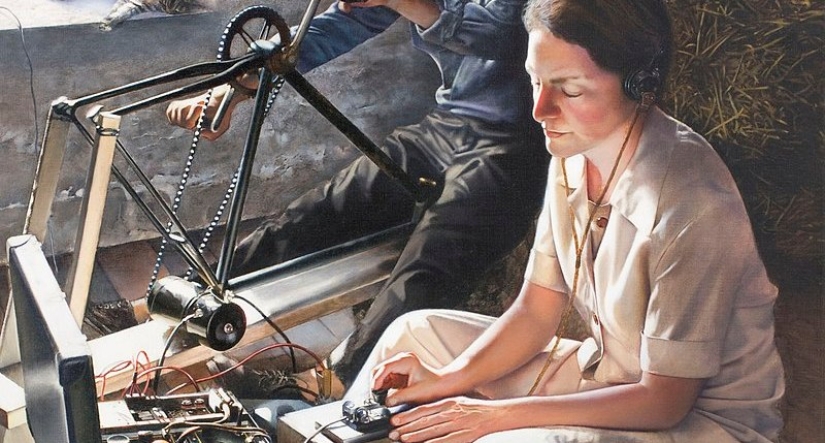
Virginia Hall was born in Baltimore, Maryland, USA on April 6, 1906 in a wealthy family. Her father was a big entrepreneur and passionately wanted to see his daughter successful. Therefore , Virginia received a brilliant education at the women's College of Harvard University and in American University in Washington.
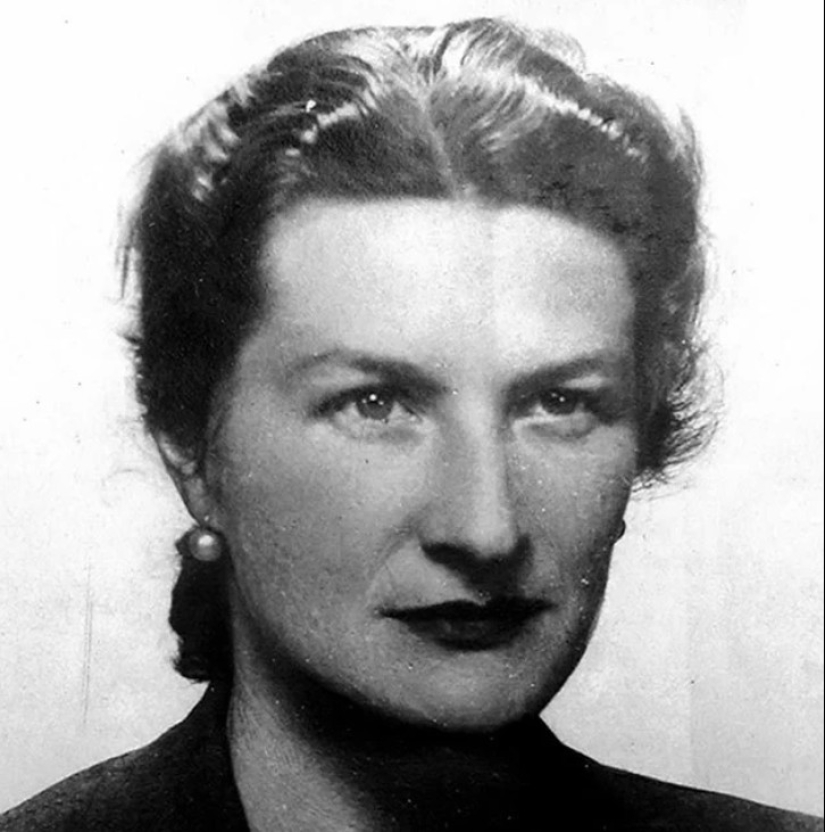
Hall was an active and sociable child. She enjoyed being a leader and participating in public life. At school, she was the class president and the leading actress of the theater circle. At the university, the girl was happy to work in the editorial office of the student newspaper.
While still studying in college, Virginia became a member of the international student program. She took a short course at the Paris School of Sciences and in Consular Academy in Vienna. Hall also visited the universities of Strasbourg, Grenoble and Toulouse, where she attended lectures on social sciences.
Thanks to her travels and thirst for knowledge, the girl has perfectly learned French, German and Italian, and also mastered Russian at an intermediate level. By the end of her studies at the University of Virginia, she received two diplomas — in international law and economics.
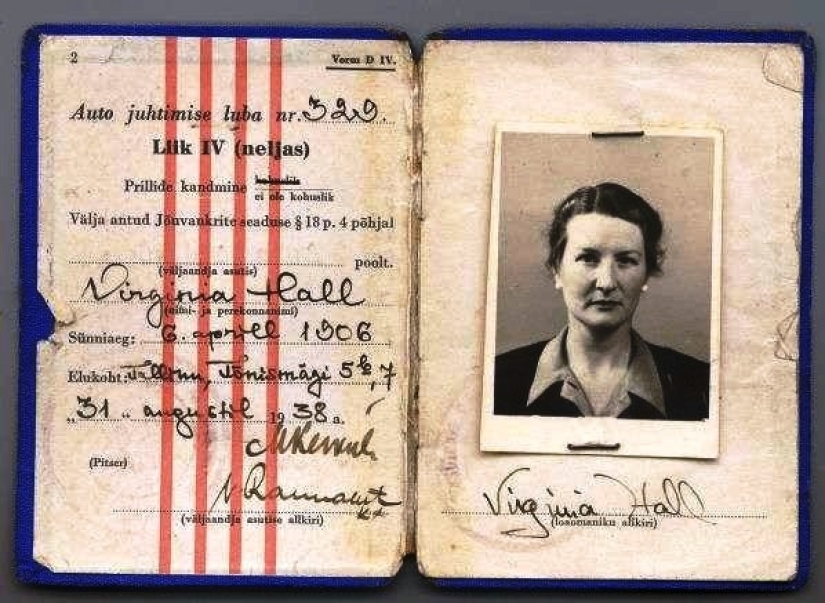
Virginia Hall has dreamed of becoming a diplomat since childhood. But in the USA, this job was considered only male. The girl failed two attempts to pass the exams for admission to the diplomatic service. But the girl did not give up her dream and in 1933 she got a job as a simple employee of the US consulate in Warsaw. In 1933, she was transferred to the consulate in Izmir, Turkey.
Despite her incredible thirst for knowledge, Virginia was not a domestic girl. She loved hiking, horseback riding and hunting. It was the last hobby that almost put an end to her life. On December 8, 1933, while working in Turkey, Hall went hunting. While reloading the weapon, the girl accidentally fired a shotgun into her left leg. The wound turned out to be terrible and gangrene quickly developed.
Turkish doctors and an American surgeon tried to save Hall's leg to the last. But soon the situation deteriorated so much that the girl had to save her life. The leg was amputated to the knee and only after that the danger passed. In January 1934, Virginia was still being treated at an American hospital in Istanbul, and in February she returned to the United States.
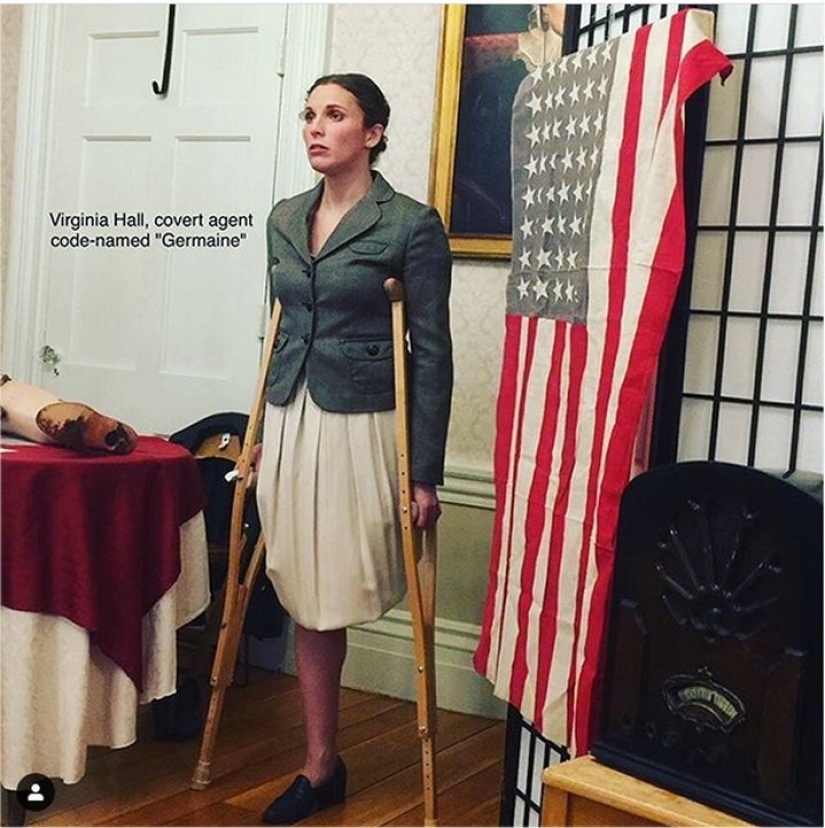
At home, Virginia underwent rehabilitation and learned to walk on a wooden prosthesis. Hall ironically called the clumsy and heavy device "Cuthbert", in honor of a medieval Scottish saint. Despite the fact that the wooden leg weighed 5 kg and was fastened with straps to the waist, the girl soon learned to wield it almost masterfully. Looking from the side at Virginia walking briskly down the street, it was difficult to suspect her of being disabled.
As soon as she recovered from her illness, Hall again tried to get a job in the diplomatic service. This time she is not allowed to take exams, citing her "disability" as the reason for her refusal. After that, Virginia worked at the U.S. consulates in Italy and Estonia, without giving up hope. But all her attempts to become a diplomat were in vain.
In May 1939, desperate to get a decent job, Virginia leaves the consular service. She goes to Paris and just rests, thinking about the prospects. In the capital of France, she finds the beginning of the Second World War. Hall is immediately sent to a recruiting station and enlists as a volunteer in the French Army sanitary service.
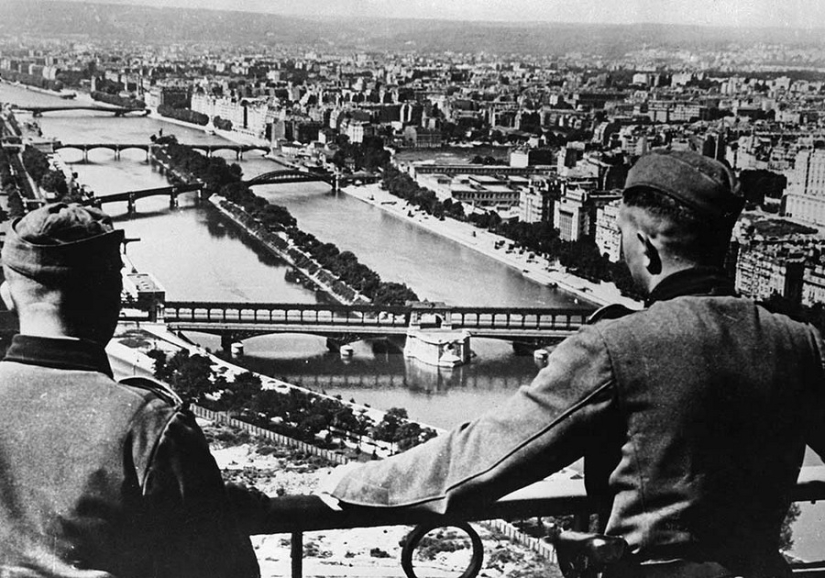
A young woman unfit for combat service is accepted for the position of a driver. Until the capture of Paris by the Nazis, Hall worked as an ambulance driver and transported the wounded from the front to rear hospitals. On June 14, 1940, the capital fell, and on June 22, German troops announced the complete capture of France. Virginia manages to escape to Spain, which is still neutral. As a result, she manages to move to England, using an American passport and connections.
In London, Hall, who knows languages well, is accepted as a cryptographer in the department of the chief military attache of the United States. But office work quickly bored Virginia, and in February 1941 she wrote a report on dismissal. No one knew that by this time she had already been recruited by the British Special Operations Directorate (SOE).
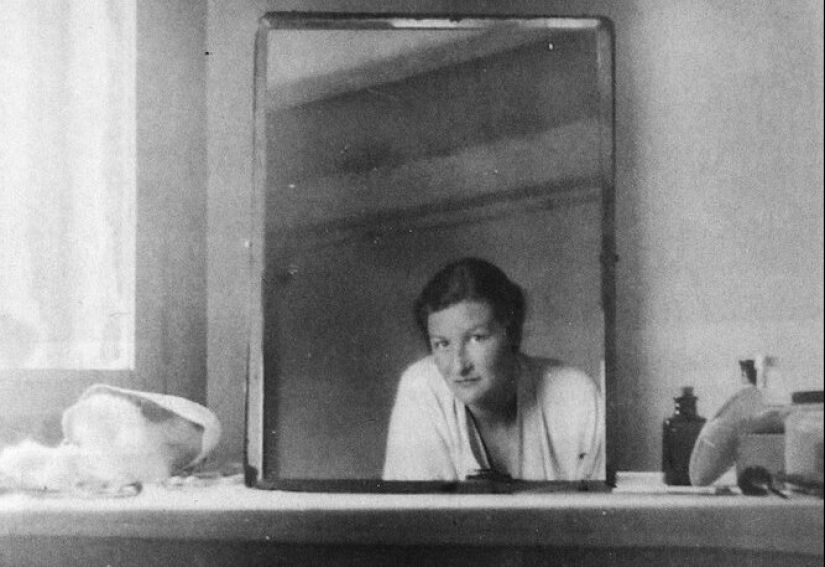
After five months of intensive training, Hall returned to France. In her purse were documents in the name of American Brigitte le Contre and a New York Post journalist's certificate. The woman's call sign was "Germain", and the operation itself was codenamed "Geologist-5".
Virginia, under the guise of a press representative, traveled all over France. She organized agents in Lyon and Toulouse, and also transmitted a lot of important data about the Nazi troops and the French traitors of Marshal Petain. After 6 months of work, according to SOE rules, they wanted to recall the woman. But Hall refused and worked behind enemy lines for 15 months.
The Nazis knew well that a scout was working nearby, but they could not catch the agent. Hall, who changed her pseudonym to "Artemis", successfully hid, although the enemy knew something about her. The Gestapo guidelines stated that the British agent was "a lame woman with a slight Canadian accent." Nothing more could be found out about Hall.
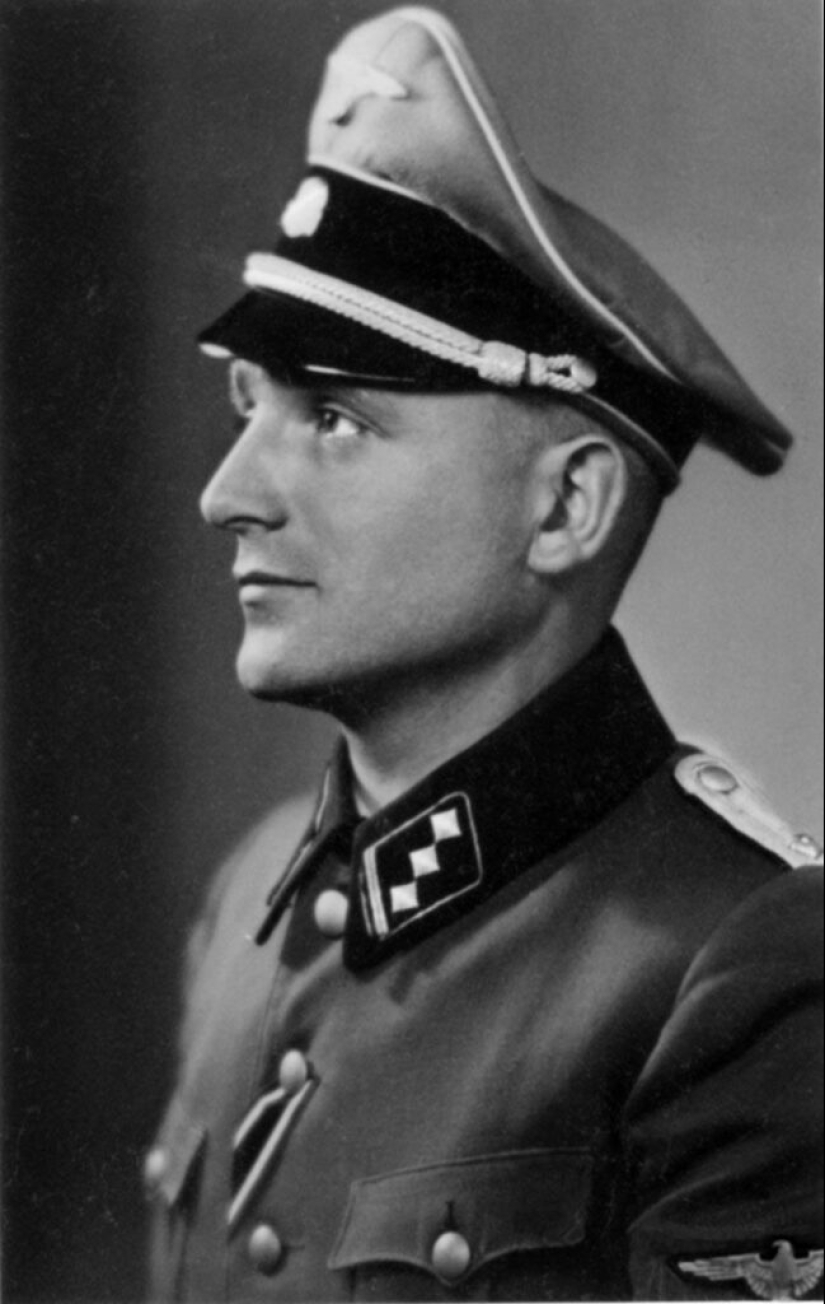
In the autumn of 1942, the Lyon Gestapo was headed by the bloody executioner Klaus Barbier. This man adored torture and set up a real laboratory of pain in the building of his department. The Nazi considered the capture of Virginia Hall to be the most important goal. He said:
At Barbier's direction, the entire south of France was plastered with advertisements with a hand-drawn portrait of Virginia. For any information contributing to the capture of the scout, the Gestapo promised a substantial reward. The ring around the brave woman was shrinking. Many of her associates were captured and shot after torture.
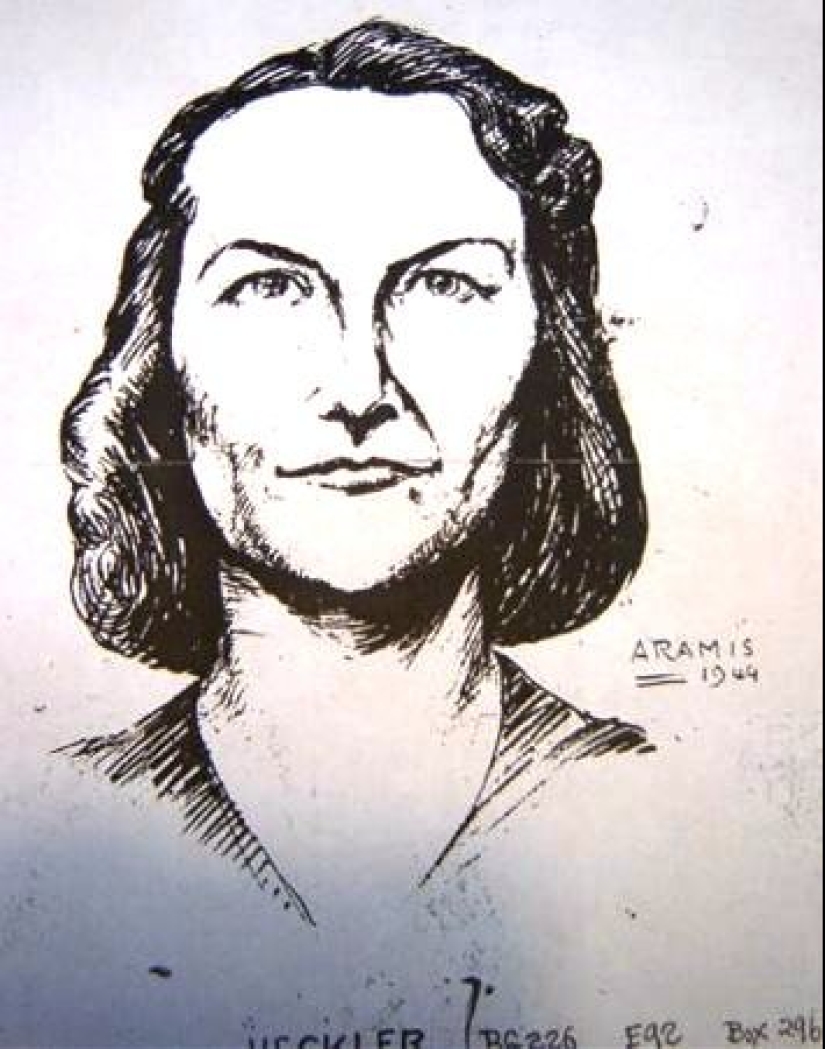
She constantly had to be wary of enemy agents embedded in the Resistance environment. Because of this, Artemis almost stopped working in a team and relied only on herself. In the most difficult situation, risking every moment, Hall worked in Lyon for another two months. On November 12, 1942, Virginia and two French comrades crossed the Pyrenees mountain trails and entered Spain.
She did the incredible, walking on a wooden prosthesis through snow-covered passes in just 80 km a day. In Spain, Hall was arrested for illegally crossing the border, but three weeks later he was extradited to British diplomats. The "Lame Lady" met Christmas 1943 in London with friends.
In July 1943, Virginia was informed that she had been presented with an award. King George VI himself was going to present a woman with the Knightly Order of the British Empire, 5th degree. But Hall refused this honor, fearing that her photo would get into the press. The order was presented to her without ceremony. She was going to return to France and, of course, she did.
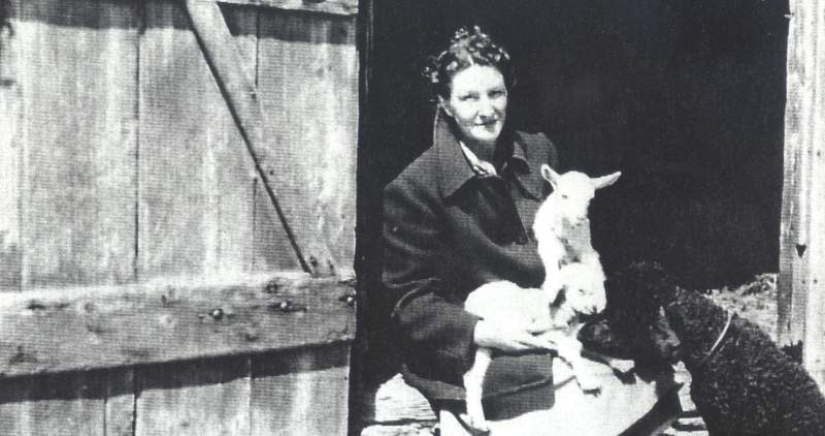
In March 1944, Virginia Hall reappeared in France with the new call sign "Diana". To get to the occupied country, she and her partner had to land on the seashore at night from a wooden longboat. This time, the woman was engaged in transmitting information about the movement of troops.
The scout had to move around the countryside a lot. In order not to attract attention with her limp, Virginia often disguised herself as an old woman. After the Allied landings in France, Hall was tasked with coordinating the actions of the army and Resistance. She successfully coped with this task for several months.
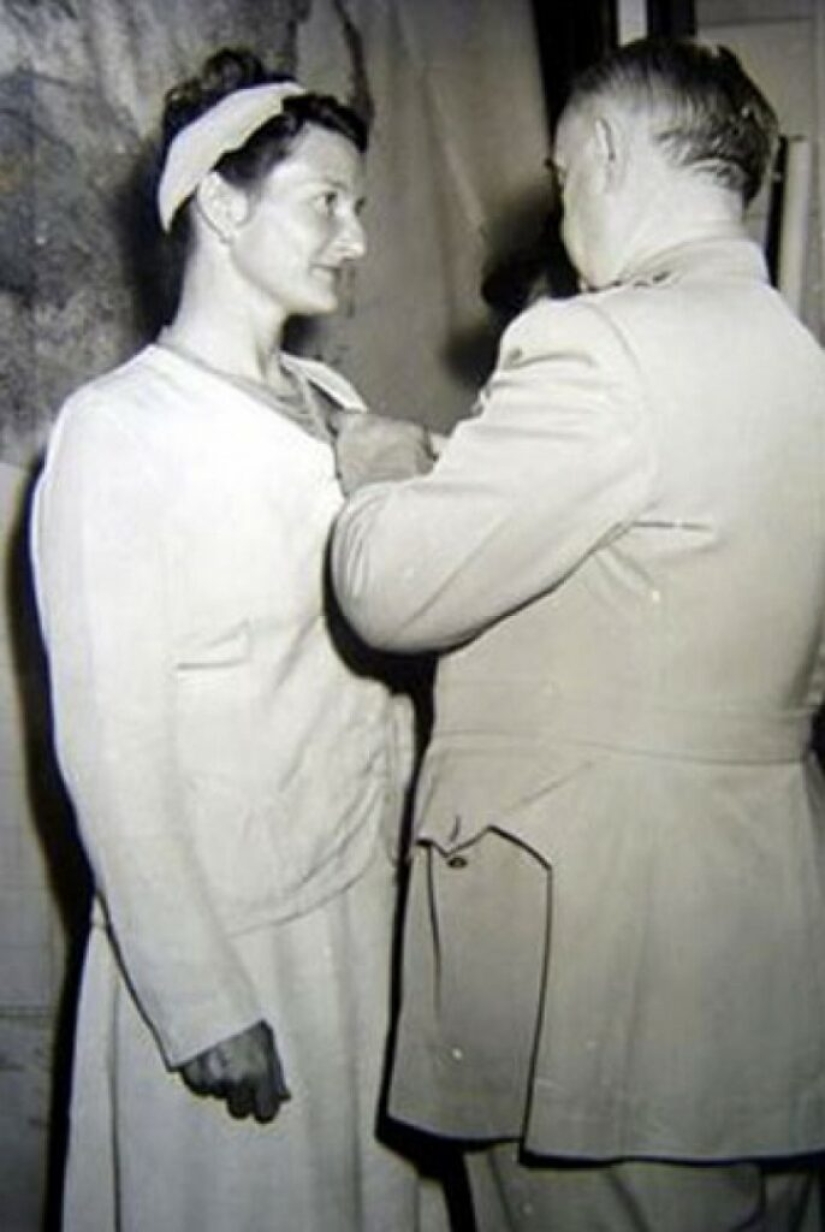
On August 26, 1944, Virginia was present during the surrender of the headquarters of the Southern Group of German Troops in France in the city of Le Chambon. And on September 4, I met Lieutenant Paul Goyo, an American of French descent. Soon they got married.
On September 23, 1945, Virginia Hall was again tried to be solemnly awarded. President Truman was going to present the American intelligence officer with the Distinguished Service Cross medal, but she again refused. As a result, the medal was presented to the heroine by General Donovan in the presence of Virginia's mother. During the presentation, Hall uttered only one phrase: "Not bad for a girl from Baltimore."
Virginia Hall worked for the CIA for many years, becoming the first woman in the command structure of the department. In 1966, she retired and settled on a cozy farm in Barnstown, Maryland. The brave scout devoted the last years of her life to reading romance novels, for which she had never had enough time before. The neighbors could not even imagine that the cute, limping old lady who bred poodles was a legendary scout.

The magnificent "Lame Lady" died on July 12, 1982 at the age of 76. Information about her life was declassified only in 2005. It was then that the world learned about the heroine of the invisible front, who was considered a personal enemy by the "Lyon butcher" Klaus Barbier.
Recent articles

It's high time to admit that this whole hipster idea has gone too far. The concept has become so popular that even restaurants have ...

There is a perception that people only use 10% of their brain potential. But the heroes of our review, apparently, found a way to ...

New Year's is a time to surprise and delight loved ones not only with gifts but also with a unique presentation of the holiday ...